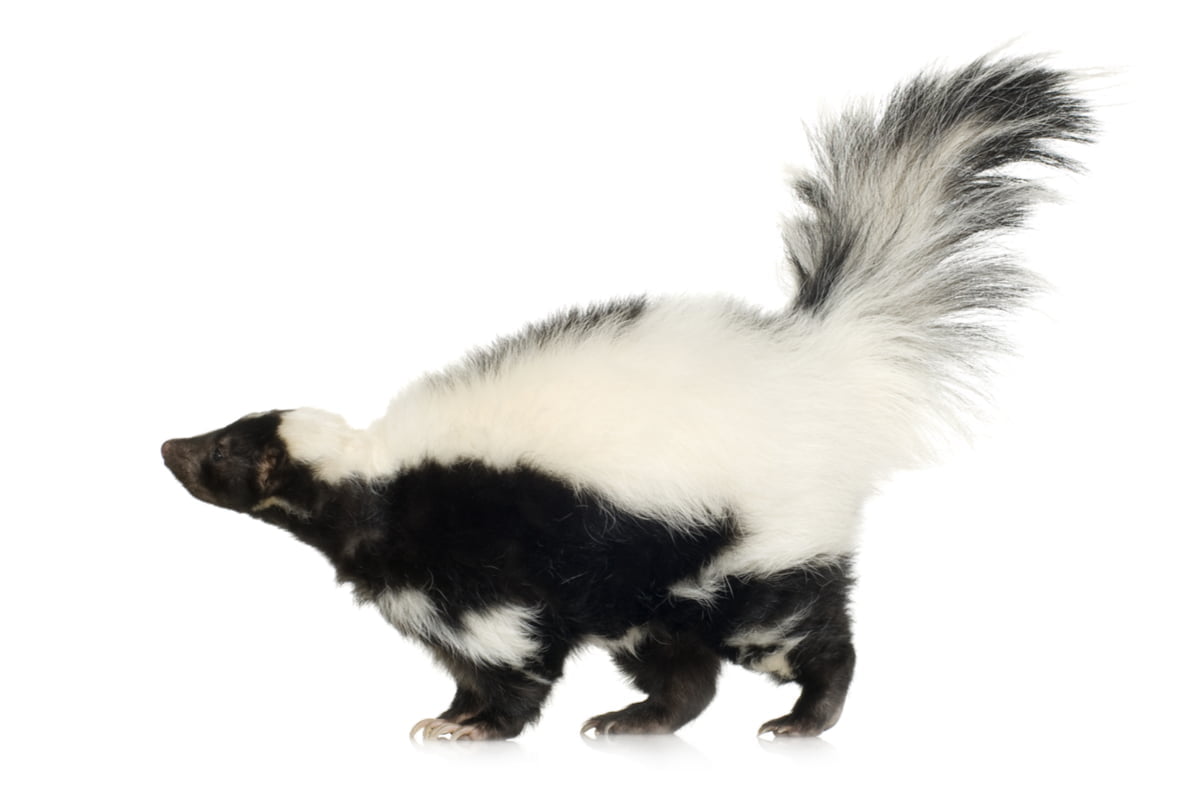Skunk
Appearance
The most common skunk in Canada is the stripped skunk. It is identifiable by its black coat and two white lines on its back and tail. Skunks can be as long as 29 cm and weigh an average of 8 pounds.
Think you might have found this animal in your home?
Talk with an Expert
Life Cycle
Females have one litter per year of 2 to 16 babies. In captivity, skunks can live up to 10 years but in the wild its lifespan is about 3 years due to lack of food and water, diseases, predators and other environmental factors.

Habitat and Food
Skunks usually make their dens in the ground. Around a residence, they could make a den under a shed, balcony or garage. Skunks often feed on waste, fruits, seeds nuts, insects, small mammals, birds, plants, reptiles and amphibians.
Undesirable Effects
Although skunks are not aggressive in nature, they can cause damage when digging in search of worms. They are known to rummage through the trash and eat the contents, feed on garden vegetables (especially corn), and also for breaking into barns in rural areas to feed on eggs. Skunks, however, are mainly known to emit a disgusting smell in the way of self-defense.
Signs of Presence
Holes in the ground, frequently shredded waste and recurring incidence of a foul odor are signs of the presence of skunks around the home.